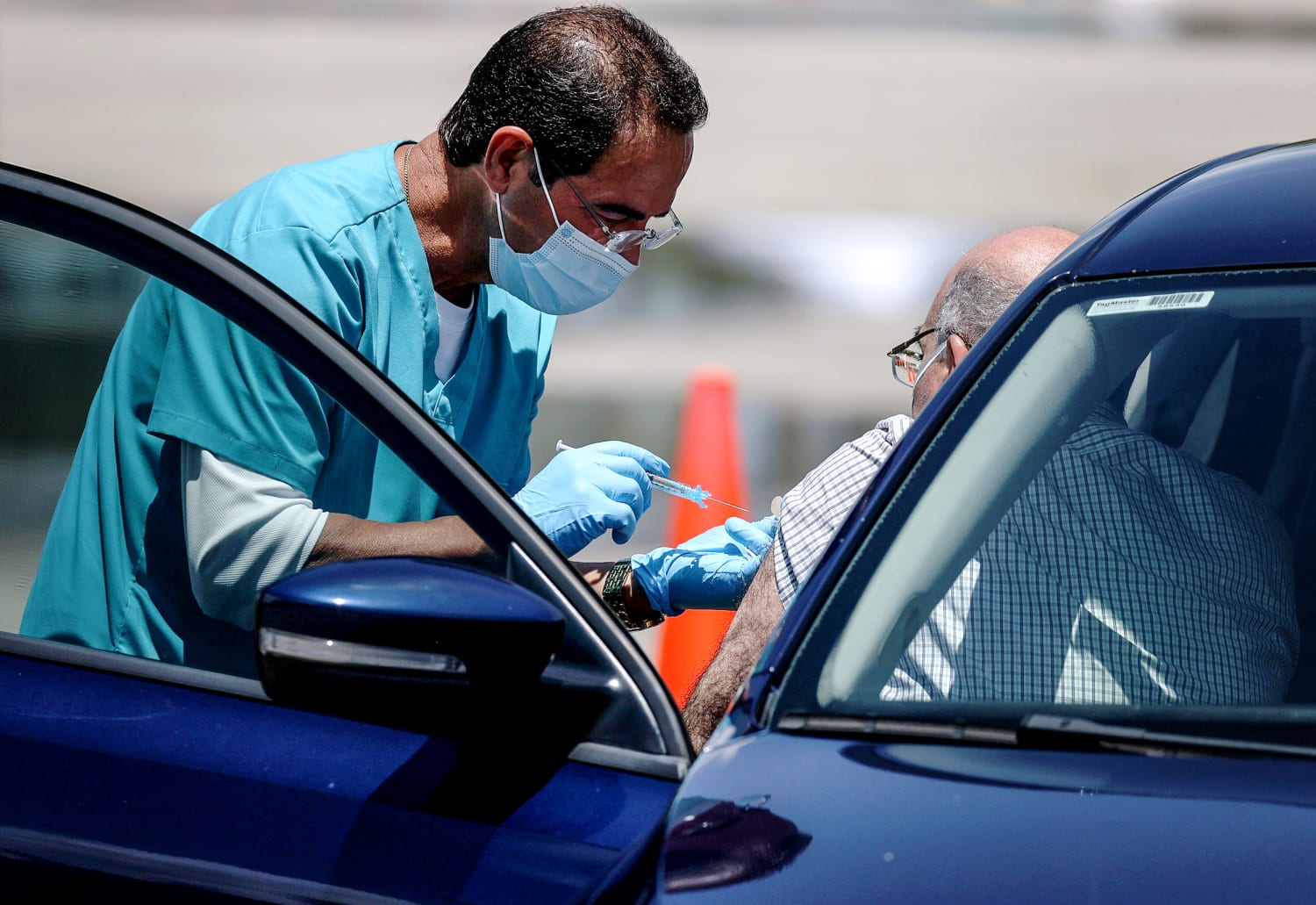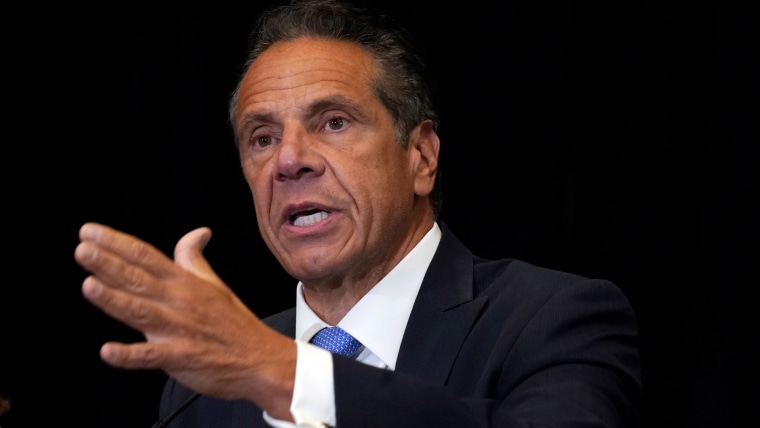Federal and state employers and some private businesses are edging closer to requiring workers to be vaccinated in a larger effort to combat the intensifying resurgence of Covid-19, which should help drive down infections and jump-start stalling immunization rates, health and legal experts say.
“Every little bit helps,” Dr. Aaron Carroll, the chief health officer of Indiana University who has written about the efficacy of vaccine mandates, said Wednesday. “The reason mandates work is because they’re nudges. If we make the default ‘Don’t be vaccinated,’ then a lot of people simply won’t.”
He added that solely reinstituting the same mask guidelines that were prevalent pre-vaccines — and are making a comeback with the spread of the highly contagious delta variant — isn’t going to have the same impact as vaccine mandates since people who are likely to adhere to mask recommendations are already vaccinated.
“We just need to get everybody else vaccinated, then we can move toward eradicating the disease,” Carroll said.
Almost 58 percent of people in the United States 12 and older are fully vaccinated against Covid-19, according to federal health data, although the rate has slowed significantly since April, when more than 3 million shots were being administered a day. That’s fallen to about an average of 622,000 doses a day.
Whether mandates can move the needle significantly, particularly in states where vaccinations rates remain low, remains to be seen.
A poll conducted last week by data intelligence firm Morning Consult found that 3 in 5 U.S. adults who responded would support vaccination requirements. But those likely to support it said they were already vaccinated and identified as Democrats, while those who were unlikely to support it were unvaccinated and Republican. However, while 49 percent of Republicans said they wouldn’t support a vaccination mandate, 38 percent said they would.
Carroll said it’s possible employees who aren’t vaccinated and weren’t necessarily motivated to become so will change their minds if their jobs are at stake, and if the vaccination process isn’t complicated, they may simply relent.
He likened it to how the Affordable Care Act requires nearly all Americans to obtain health insurance or pay an income tax penalty, or how employers might require a worker to declare whether they use tobacco, and if they do, they pay more toward their health insurance.
“There are lots of things in life people don’t have an absolute right to do. If you want to fly internationally, there’s a mandated test” for Covid-19, Carroll added.
While Covid-19 vaccines are still awaiting full approval from the Food and Drug Administration, which may be one reason why some people remain hesitant about receiving a shot, there’s no legal basis stopping employers from mandating the vaccination, said Joel Friedman, an attorney and professor specializing in labor law at Tulane University in New Orleans.
He added that federal law allows only narrow exceptions for why an employee can decline to get vaccinated, such as whether the worker is protected under the Americans With Disabilities Act or if they have a religious exemption.
Those cases, however, would make up only a small portion of the workforce, Friedman said, and the “government can enforce requirements for the public good, safety and welfare.”
Already, this week has seen a number of U.S. employers roll out impending vaccination requirements as businesses wrestle with potential backlash and many employees who had been working from home for months begin transitioning back to the office.
On Monday, the Department of Veterans Affairs became the first federal agency to require all of its medical facility employees to be vaccinated against Covid-19.
On Tuesday, The Washington Post said all employees must show proof of vaccination as a condition of employment when they have to return to their workplace in September.
On Wednesday, Google became the first major tech company to announce it will require employees returning to its campuses to be vaccinated. Separately, New York Gov. Andrew Cuomo, a Democrat, said his state’s 130,000 government workers must be vaccinated or face weekly testing.
Meanwhile, President Joe Biden is expected to announce Thursday that federal workers will be required to be vaccinated or abide by stringent protocols, like regular testing and mask-wearing.
Friedman said larger, national companies that implement similar mandates could have a domino effect across industries.
“If a Walmart or CVS would do it, others would fall in line,” he said.
Dr. Kevin Schulman, a professor of medicine and economics at Stanford University’s school of medicine and graduate school of business, said other strategies may have helped vaccine skeptics get inoculated in recent months, such as state lotteries with multimillion-dollar prizes. New York City announced Wednesday it would give residents and city employees $100 if they get vaccinated.
One Boston University study, however, found Ohio’s money giveaway to coax unvaccinated people had only a “limited” success.
Schulman said he’s worried that vaccination mandates may simply re-energize the anti-vaccination movement and have the unintended effect of turning off people who are on the fence. He suggests better marketing of vaccines toward people who are apathetic, which could have a more positive reaction than forcing immunizations.
“It’s very easy for those sitting at home now to get engaged by fighting a mandate,” Schulman said. “To me, that’s the risk.”
Employers in places like Louisiana, where the delta variant is spreading at a rapid clip, are scrambling to figure out what’s best for their workers.
When the state instituted a statewide mask mandate a year ago, restaurateur Emelie Alton said her employees were willing to comply. But vaccines have been a different story: About 50 to 75 percent of her staff across three locations are inoculated, despite her best efforts to encourage more of them.
Still, she’s not forcing a mandate, understanding how doing so might drive away workers in an already tight economy that has the service industry in her state hurting for a reliable workforce.
“Some folks who are reluctant may decide they’re going to do what they have to do if they want to work,” Alton said. “But I also know that employees have the choice to go somewhere else.”
Source: | This article originally belongs to Nbcnews.com











